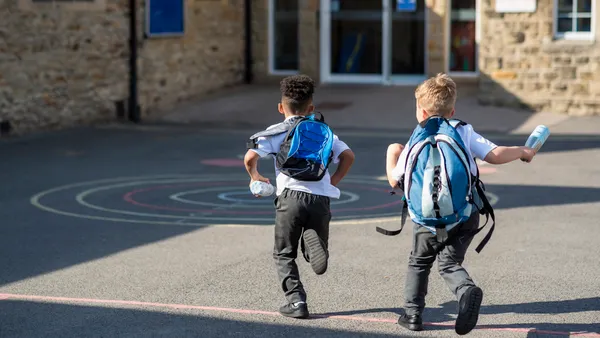Dive Brief:
- Only 40% of teachers surveyed by the National Center for Science Education (NCSE) correctly knew that 81% to 100% of “climate scientists think that global warming is caused mostly by human activities,” wrote Ann Reid in Education Week.
- As the executive director of NCSE, Reid is alarmed that just 57% of teachers say they’ve never received any kind of formal training around climate change. That lack of knowledge is showing up in classrooms, also influenced by educators who may feel intimidated to go up against others who still think humans are not impacting the global climate.
- Reid is hopeful, however. There are people today, she wrote, including professor Kerry Emanuel and climate scientist Katharine Hayhoe, who are showing educators how to bridge the gap between religion and science around climate change.
Dive Insight:
A classroom can quickly turn into a battlefield when sensitive topics are approached. Religion, for instance, can lead to arguments, but so can subjects like climate change to evolution. These talks can run up against religious and political thought, but educators have an obligation to work through these concerns and teach students about objective facts, no matter the subjective views.
However, those who teach in schools where parents, students and even other teachers share beliefs that run counter to a scientific principle, may feel intimidated to stay silent. Worse, they may entirely avoid certain subjects — or ways of approaching these topics — because they don’t know how to address what they see as potential minefields.
Such was the finding of a 2016 study published in the journal for The American Society for Cell Biology that surveyed 32 biology instructors when it came time to teach evolution. Educators avoided talking about religion when bringing up the subject, even though resources exist that discuss religion and evolution in a way that support scientific thought without negating their beliefs. “Helping students construct bridges between their religious beliefs and evolution may also help students accept evolution,” the researchers wrote.
Teachers and administrators have a responsibility to educate students through factual information and research. Avoiding subjects because they run counter to an educator's own beliefs, or refusing to try to meet students in their way of thinking, can do a disservice — not only to the mission of teaching, but to the young minds they’ve promised to help.











